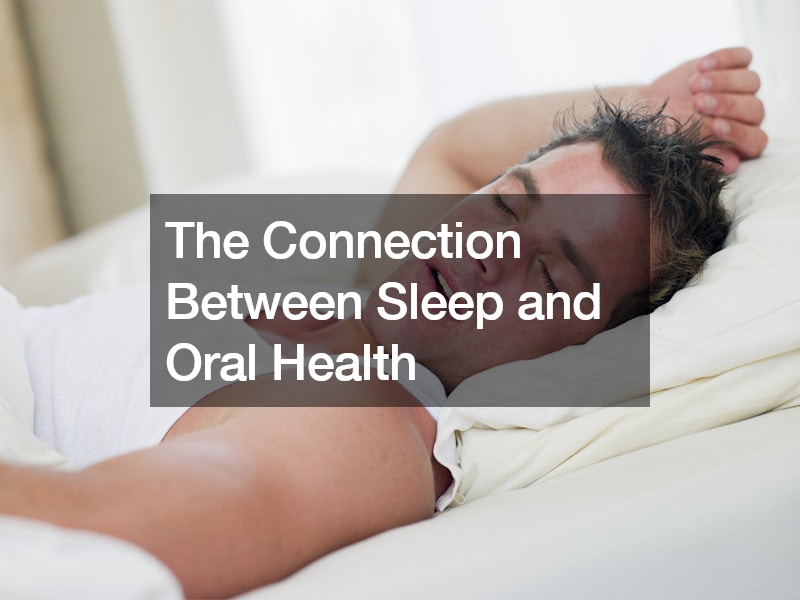Sleep and oral health might seem like two separate realms of well-being, but they are more interconnected than you might think. While we often focus on brushing, flossing, and regular dental check-ups to maintain our oral hygiene, the quality of our sleep can also significantly impact the health of our mouths—and vice versa.
Understanding Sleep Hygiene
Sleep hygiene refers to the habits and practices that promote good sleep quality. Consistent bedtime routines, adequate sleep duration (ideally 7-9 hours per night), and creating a conducive sleep environment are all essential components of sleep hygiene. Just as we prioritize dental hygiene routines to keep our teeth and gums healthy, incorporating good sleep hygiene practices into our daily lives is crucial for overall well-being.
The Impact of Sleep on Oral Health
Quality sleep plays a vital role in oral health maintenance. During sleep, our bodies undergo processes of repair and regeneration, including the restoration of oral tissues. Adequate sleep helps support immune function, which is essential for fighting off oral infections and maintaining gum health. Conversely, poor sleep habits, such as irregular sleep patterns or sleep deprivation, can weaken the immune system and increase the risk of oral health issues like gum disease and tooth decay.
Sleep Disorders and Oral Health
Sleep disorders, particularly sleep apnea, can profoundly impact oral health, creating a complex interplay between sleep quality and oral hygiene. Sleep apnea, characterized by recurrent pauses in breathing during sleep, is often accompanied by symptoms such as loud snoring and fragmented sleep patterns. These breathing interruptions can have direct implications for oral health, as they disrupt the normal physiological processes that occur in the mouth during sleep.
One notable consequence of sleep apnea on oral health is the development of dry mouth, medically known as xerostomia. During episodes of sleep apnea, the irregular breathing patterns can lead to decreased saliva production and a sensation of dryness in the mouth. Saliva plays a crucial role in maintaining oral health by lubricating the oral tissues, washing away food particles and bacteria, and neutralizing acids that can erode tooth enamel. When saliva production is reduced due to dry mouth, the oral environment becomes more conducive to bacterial growth and plaque accumulation, increasing the risk of tooth decay and gum disease.
Recognizing Sleep Disorders
Identifying sleep disorders is crucial for both overall health and oral health maintenance. Symptoms such as snoring, daytime fatigue, and witnessed breathing pauses during sleep may indicate the presence of sleep-disordered breathing, including sleep apnea.
To aid in the early detection of sleep disorders, various screening tools have been developed, with the STOP-BANG questionnaire being one commonly used tool in clinical practice. The STOP-BANG questionnaire includes eight simple questions designed to assess the likelihood of obstructive sleep apnea based on specific risk factors and symptoms. Questions encompass aspects such as snoring (S), daytime tiredness (T), observed apneas (O), high blood pressure (P), body mass index (B), age over 50 (A), neck circumference (N), and male gender (G).
Individuals who score positively on three or more questions are considered at high risk for sleep apnea and should be encouraged to undergo further evaluation, such as diagnostic sleep studies, to confirm the presence and severity of the condition.
Seeking Treatment
Seeking treatment for sleep disorders is essential for improving sleep quality and safeguarding oral health. Diagnostic sleep studies, either conducted in a sleep laboratory or through home sleep testing, can help determine the severity of sleep apnea and guide treatment decisions.
Once a sleep disorder, such as sleep apnea, has been diagnosed through diagnostic sleep studies, individuals can explore various treatment options tailored to their specific needs and preferences.
- Lifestyle Modifications: Making lifestyle changes can often be an effective first-line approach to managing sleep disorders. These modifications may include weight loss, regular exercise, avoiding alcohol and sedatives before bedtime, maintaining a consistent sleep schedule, and optimizing sleep environment.
- Oral Appliances: Dentists can fabricate custom oral appliances, such as mandibular advancement devices (MADs) or tongue-retaining devices (TRDs), to help alleviate symptoms of sleep apnea. These devices work by repositioning the jaw or tongue to keep the airway open during sleep, reducing snoring and breathing disruptions.
- Continuous Positive Airway Pressure (CPAP) Therapy: During CPAP therapy, the patient wears a mask connected to a machine that delivers a continuous flow of air to keep the airway open during sleep. While CPAP is considered the gold standard treatment for moderate to severe sleep apnea, some individuals may find it challenging to tolerate, leading to poor adherence.
- Surgical Interventions: In cases where lifestyle modifications and oral appliances are insufficient, or CPAP therapy is not tolerated, surgical interventions may be considered. Surgical procedures, such as uvulopalatopharyngoplasty (UPPP), septoplasty, or maxillomandibular advancement (MMA), aim to address anatomical abnormalities or structural issues contributing to sleep apnea.
Challenges and Solutions
Despite the importance of sleep hygiene and the treatment of sleep disorders, individuals may face challenges in maintaining healthy sleep habits and seeking appropriate care. Factors such as lifestyle demands, denial of sleep-related issues, or difficulty accessing healthcare services can hinder efforts to address sleep disturbances.
However, raising awareness about the connection between sleep and oral health, implementing screening protocols in healthcare settings, and promoting multidisciplinary approaches to sleep care can help overcome these challenges and improve outcomes for individuals with sleep disorders.
Final Thoughts
The relationship between sleep and oral health is undeniable. Just as we prioritize dental hygiene to preserve our smiles, prioritizing good sleep hygiene and addressing sleep disorders are essential for overall health and well-being. By recognizing the connection between sleep and oral health and taking proactive steps to promote healthy sleep habits, we can ensure a brighter, healthier future for both our mouths and our bodies.
.


